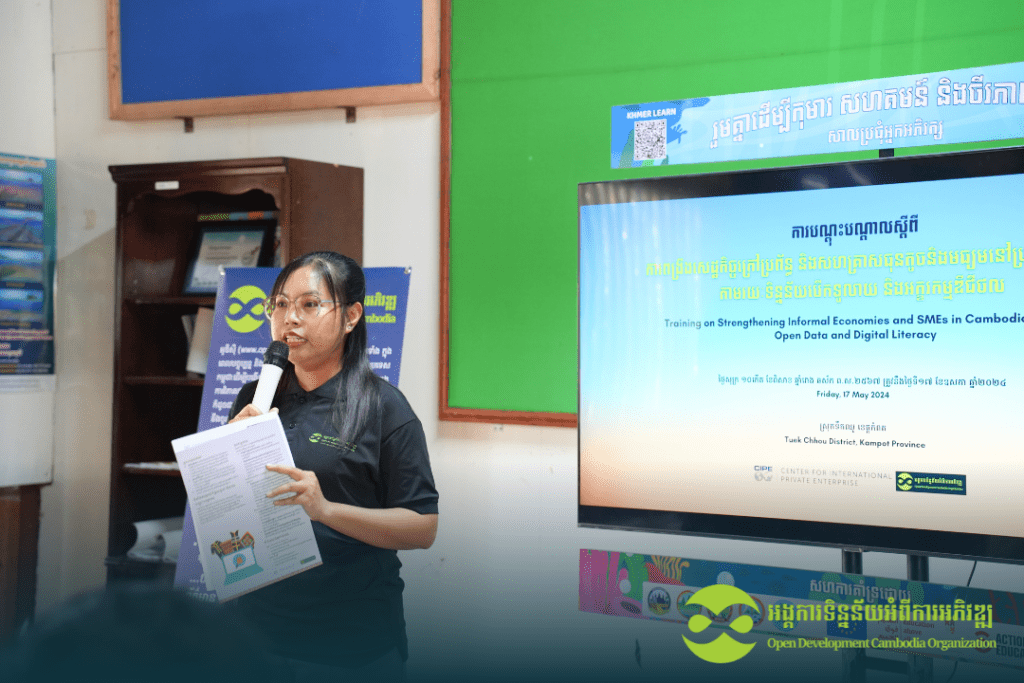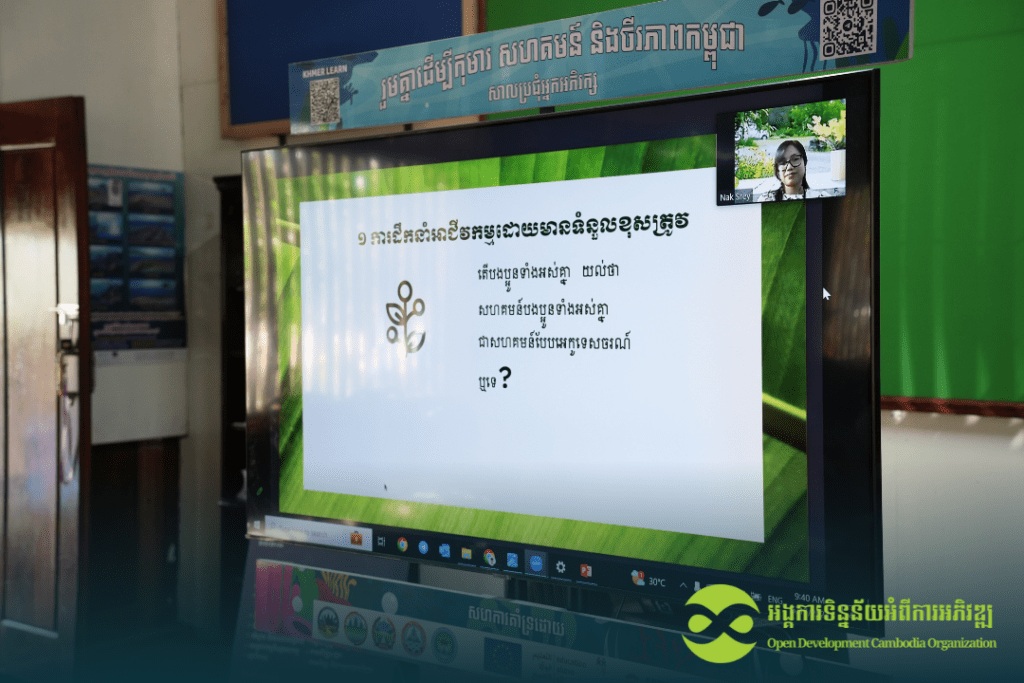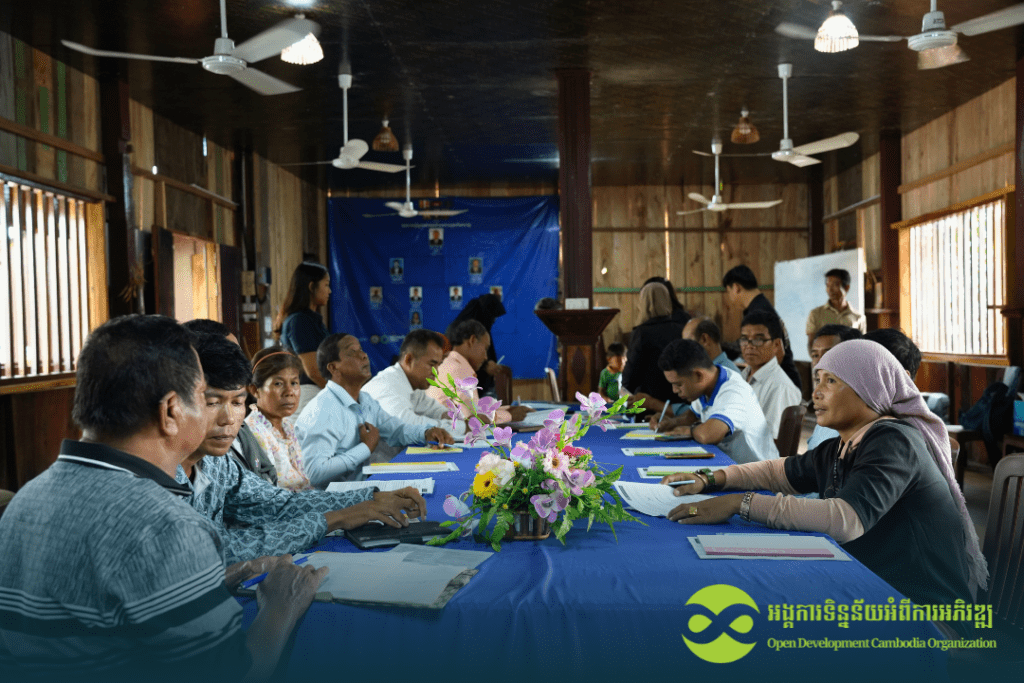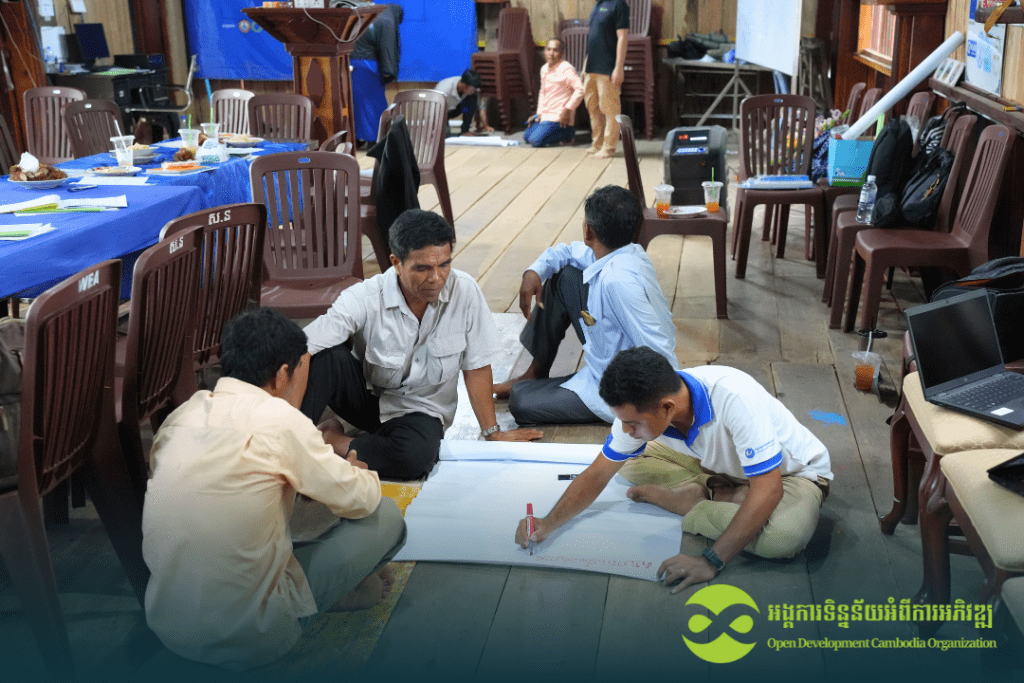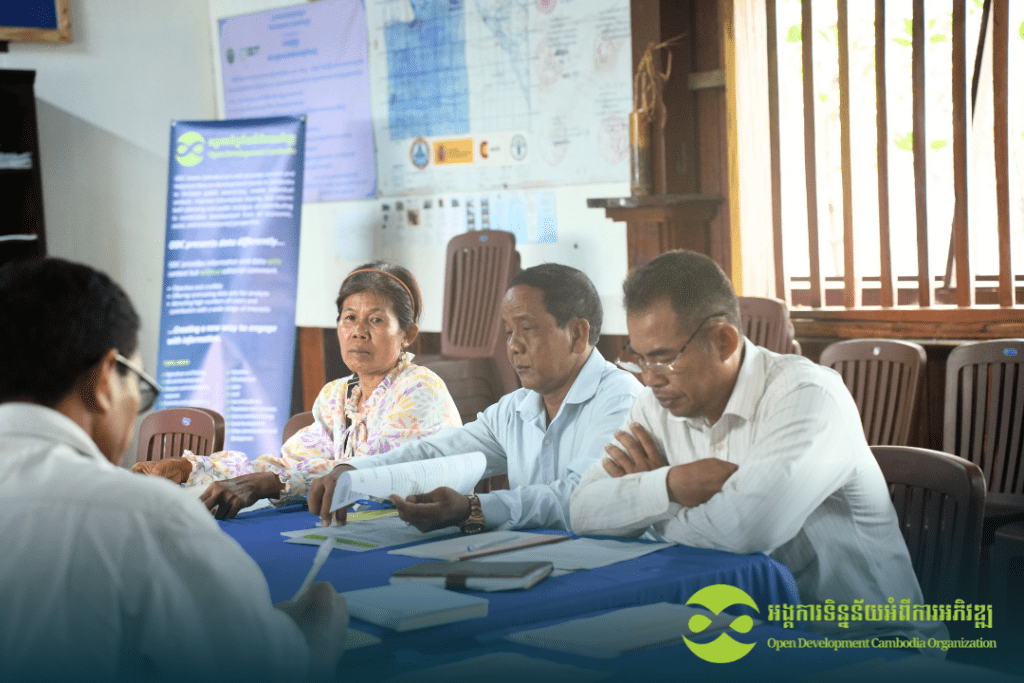Four community fisheries in Kampot attended a training on business plan and digital literacy
On 17 May 2024, Open Development Cambodia (ODC) organized a full-day training in Tuek Chhou district, Kampot province, attended by 24 participants, including six women who lead or run businesses from four community fisheries and tourism communities: Trapeang Sangke, Kampong Samaki, Prek Tnaot, and Trapeang Ropov. This was the third training session hosted for members of informal economies and Small and Medium Enterprises (SMEs), following sessions in Phnom Penh and Mondulkiri province. It is important to note that this training is an activity of the project “Strengthening Informal Economies and SMEs in Cambodia through Open Data and Digital Literacy,” funded by the Center for International Private Enterprise (CIPE).
The training began with welcome and opening remarks highlighting the objectives and expected outcomes. Participants were then provided with more information about the project’s rationale, objectives, and other aspects, which SMEs and informal economies are the target groups. Key activities in this project include increasing legal awareness in the private sector in Cambodia, engaging in discussions on legal aspects and training, and disseminating pertinent information through ODC’s social media networks.
The training covered three main topics, starting with “Business Plan and Corporate Social Responsibility,” presented by Ms. Srey Nak, Business Development Partner & CSR Specialist at Sarana Law Firm. The second topic was “Social Media Content Creation,” presented by Mr. Nay Maneth, Communications Manager of ODC. The final topic was “Digital Safety,” presented by Mr. Sam An Mardy, IT and Website Manager of ODC. Participants were given exercises to analyze and reflect on current business situations including tourism services, using a business model assigned by the trainers. They also completed a quiz on the use of digital tools and social media networks for daily life and business purposes, as well as for promoting tourism potential in their communities.
After the training, participants discussed in groups representing their communities about legal compliance and community registration, benefits and challenges for the community, suggestions, and women and youth participation in business and community development. In general, they prioritized officially registering their community from local to national authorities, including Ministry of Agriculture, Forestry and Fisheries. Additionally, some communities have improved their capacity to serve nature-based tourists and are required to submit tax returns for their tourism businesses. Some communities raised concerns about the need for knowledge and skills to develop their communities into attractive tourism destinations, aimed at improving local livelihoods and conserving natural resources.
Before concluding the training, the moderator instructed participants to join a Telegram group for up-to-date information and knowledge on business and other opportunities. Participants also completed a pre-test before the training and a post-test after the three training topics to compare their knowledge before and after the training. Furthermore, they filled out an evaluation form to measure the effectiveness of the training and how well it met the project objectives, especially to prepare better for upcoming training sessions.
